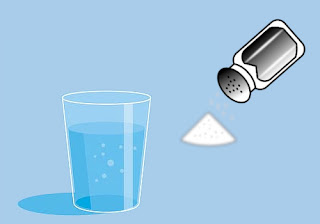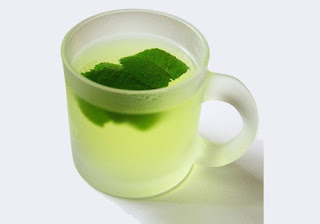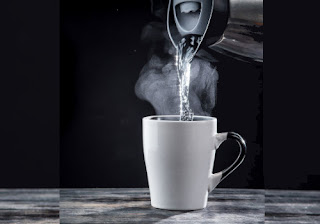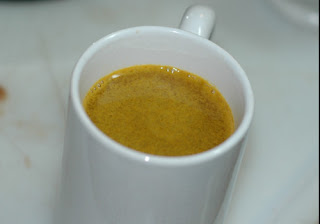Walking Pneumonia Symptoms in Adults-Treatment and Home remedies

What are the walking pneumonia symptoms in adults? Pneumonia is a lung infection that can affect one or both the lungs. The air sacs of the lungs, alveoli are inflamed due to inflammation. The inflamed alveoli are filled with pus and fluid; hence the individual finds it difficult to breathe.
The infection can be caused by bacteria, viruses, fungi, chemicals, etc. Different bacteria can cause walking pneumonia, such as Mycoplasma pneumonia, Chlamydia pneumonia, and Legionella.
Mycoplasma pneumonia is the most common and causes the milder form of pneumonia.
Legionella pneumonia (Legionnaires’ disease) is a dangerous form of pneumonia that can lead to respiratory failure and death.
What is walking pneumonia?
Walking pneumonia also referred to as atypical pneumonia, is the milder form of the infection. Mild pneumonia remains asymptomatic, and if at all the symptoms appear, it can be seen in the form of cold and flu.
Mild pneumonia does not require any bed rest or hospitalization; the individual will be walking and can follow the daily routines without much struggle, hence the name walking pneumonia.
Walking Pneumonia Symptoms in Adults
Atypical pneumonia symptoms are the same for both adults and children, and one should stay at home until the symptoms subside.
People tend to go out in public if they feel better, but they are prone to spread the infection.
The incubation period for walking pneumonia varies between 15 to 20 days. The symptoms worsen in the next 4 days after the incubation period.
The infection can be in the lower and upper respiratory tract. walking pneumonia symptoms in adults include-
- Chest pain, as the alveoli are filled with fluid, the lungs put lots of effort into breathing. A deep breath will be painful. Inflammation in the windpipe
- Rapid and labored breathing
- Wheezing
- Abdominal pain
- Headache, fever with chills
- Sore throat
- Tiredness
- Dry cough
- Vomiting
- Abdominal pain
- Weakness that may last until the symptoms subside
- The other symptoms include ear infection, anemia, or a skin rash.
Is walking Pneumonia Contagious?
People suffering from Mycoplasma pneumonia are contagious, and they tend to spread the infection unknowingly until 4 weeks.
The spread of infection continues until the symptoms subside. Mycoplasma pneumonia-causing walking pneumonia is spread through person-to-person contact.
When a person coughs or sneezes, the infected droplets can get inhaled by a healthy person. The infection spreads rapidly in crowded places, schools, and other public places.
Legionnaires’ disease does not spread through personal contact but gets transmitted through infected droplets and contaminated water.
Risk factors for walking pneumonia
Walking pneumonia usually occurs in children and people who are not older than 40 years. People should avoid crowded places when suffering from mild pneumonia.
A person suffering from it should avoid public places, schools, dorms, etc. It is most common in late summer and fall.
1. Age
Children below two years of age and above 65 years are at risk of developing mild pneumonia.
The immune system is underdeveloped in children and weakened in older people; they are prone to atypical pneumonia.
2. Secondary Infection in Hospitals
People who have been hospitalized and are on a ventilator are likely to develop mild pneumonia as a secondary infection.
3. Immuno-compromised Patients
People who have undergone transplantation, chemotherapy, HIV or AIDS, and long-term usage of steroids have compromised immune systems.
Smoking and unhealthy lifestyles further increase the risk of infections.
4. Pregnant Women
The immune system is altered in pregnant women. They are at increased risk of infection and cause premature labor. Mild pneumonia can also lead to death during labor and birth.
5. Respiratory Diseases
People suffering from Asthma, Emphysema, and chronic obstructive pulmonary disease (COPD) are at increased risk of developing an infection.
Walking pneumonia vs. Bronchitis
Both Walking pneumonia and bronchitis are diseases of the respiratory tract. Pneumonia is due to infection and inflammation of the alveoli, whereas bronchitis affects the bronchial tubes.
Walking pneumonia is caused by microbial infection, mostly bacteria, whereas bronchitis can be due to bacteria, virus, or long-term inflammation in your lungs.
In the long run, bronchitis can turn into pneumonia. Walking pneumonia and bronchitis produces phlegm.
The symptoms of bronchitis are more like upper respiratory tract fatigue, sore throat, running nose, shortness of breath, wheezing, chest discomfort.
The pneumonia symptoms include high fever, chills, sweating, blue lips due to lack of oxygen, chest pain while coughing, etc.
You may like: How to get rid of Bronchitis Without Antibiotics!
How to Diagnose walking Pneumonia
People suffering from walking pneumonia will not have severe symptoms, and the primary diagnosis is made with the stethoscope.
The doctor will listen to the crackling, bubbling, whistling, or rattling sounds that indicate bronchitis or pneumonia. Following additional tests are performed.
Sputum culture
A sample of phlegm is collected when you cough up and is analyzed for the type of germs.
Chest X-rays
This can be helpful in the differential diagnosis of bronchitis and pneumonia. X-ray examination helps to identify the place of infection in your lungs.
Pulse oximetry
In walking pneumonia, the lungs work hard to supply oxygen to the body. A clip is attached to the finger to measure the amount of oxygen in the blood.
Pulmonary function test
An instrument spirometer is used to measure the amount of air the lung can hold and how forcefully one can blow out the air.
Read Also: Foods That Fight Common Colds and Flu
Treatment of walking pneumonia
Walking pneumonia treatment depends on the causative organism, the severity of symptoms, age, and other health factors.
Bacterial pneumonia can be treated with antibiotics. The symptoms may subside within a few days but continue and complete the prescription.
People stop the medications if they feel better; this increases the chance of reoccurrence of pneumonia with severity.
Improper medication also results in antibiotic resistance. The cough may take a little longer to subside.
Atypical pneumonia due to viruses cannot be treated with antibiotics; doctors will perform a thorough analysis and prescribe medicines for the symptomatic treatment.
OTC medicines relieve aches and pains, fever, and throat. Cough suppressants are also prescribed, but little coughing can help remove them.
Home remedies for walking Pneumonia

Home remedies cannot help you in fighting the infection but do provide symptomatic relief. Here we offer home remedies for symptomatic relief.
1. Saltwater gargle

It helps in removing mucus from the throat and relieves irritation.
Preparation
- Dissolve one-fourth teaspoon salt in a glass of warm water and gargle.
- Make sure the water is not hot as it can burn your mouth.
- Gargle for 30 secs and spit it.
- Repeat it a couple of times in a day.
2. Peppermint Tea

Peppermint is a proven decongestant, anti-inflammatory, and painkiller. It helps in preventing irritation in the respiratory tract and removes mucus.
It is available as bagged tea or makes fresh peppermint leaves tea. Even the aroma of peppermint tea can help you clear the nasal passage.
Preparation
Wash and cut the mint leaves, add boiling water, and steep it for 5 mins. Milk, lemon, and honey can be added for taste.
3. Lukewarm Compress
This technique helps in lowering the outside body temperature. Don’t use cold water compress as it can cause chills.
Preparation:
- Use a clean towel or cotton cloth and wet it in lukewarm water.
- Remove the excess water and compress it over your forehead.
- Repeat the procedure until the temperatures start to reduce.
4. Drink warm water

It helps you to stay hydrated and also keep yourself warm.
5. Hot soup
It can help you provide energy and also provides warmth.
6. Coffee

It is composed of theophylline, a bronchodilator that helps open the airways in your lungs.
Coffee provides symptomatic relief that can last up to 4 hours.
7. Turmeric tea

It possesses anti-inflammatory, antioxidant, and antimicrobial properties that can help in pain relief.
Turmeric is available as a capsule in various stores, or buy turmeric tea bags. You can also make fresh turmeric tea.
Preparation
In two cups of boiling water, add one teaspoon of turmeric powder. Simmer the liquid for 10 mins, strain, and serve with lemon and honey.
You can also include black pepper powder as it can increase the absorption of turmeric. You can drink as many times as you like.
8. Ginger Tea

This household element possesses anti-inflammatory and analgesic properties that help in relieving pain. You can buy ginger tea bags or make fresh ginger tea.
Preparation
Grate or crush a few fresh gingers pieces and add them to boiling water. Let the ginger water simmer for 20 min.
Strain the liquid and add honey and lemon to taste. You can consume it as many times as you like.
In Closing
Walking pneumonia or atypical pneumonia is the mild form of pneumonia that is majorly caused by bacteria.
The symptoms of walking pneumonia in adults include fever, headache, sore throat, cough, shortness of breath, fatigue, etc. The infection is contagious and can be spread through person to person contact.
People with a weak immune system are likely to be at risk of developing walking pneumonia, such as toddlers, older people, immune-compromised people, etc.
The doctor may prescribe antibiotics for the treatment of bacterial walking pneumonia. Ginger tea, turmeric tea, peppermint tea, warm compress, salt water gargle, etc., can help you relieve the symptoms.





